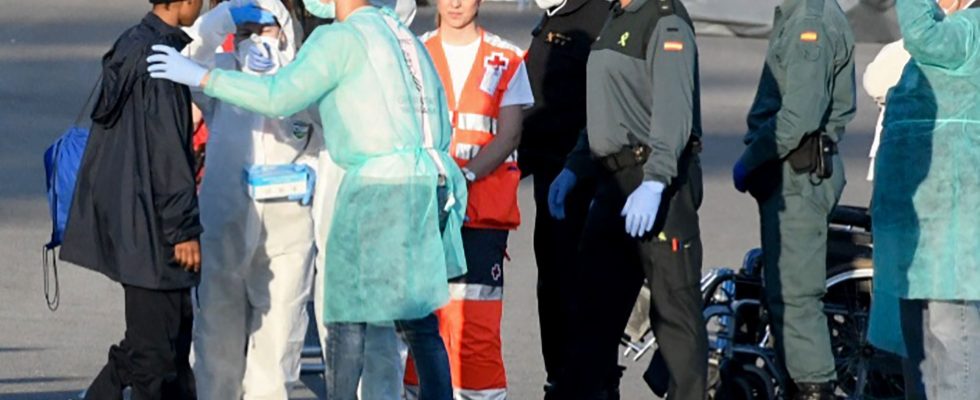Adopted on Tuesday, November 7 in the Senate, the abolition of state medical aid (AME) for undocumented immigrants is criticized even within the government itself. “It is a profound error, and there are times when the error borders on the fault. It is a fault,” declared the same evening the Minister of Health, Aurélien Rousseau, guest of the program Daily. The upper house of Parliament has also attracted the wrath of part of the medical profession. It is “a humanitarian, health and financial heresy”, denounced, Wednesday November 8, the federation of public hospitals, the representative of private hospitals also calling for “maintain [ce dispositif] public health.
“Financially, the abolition of the AME would extremely weaken a public hospital subject to strong budgetary pressures [en le privant] funding associated with the care of sick people who would continue to be treated”, reported the French Hospital Federation. An argument also taken up by Aurélien Rousseau, who cites the example of Spain, which had removed the system in 2012, to reinstate it in 2018. “Spain tried this system. After a few years, they realized that they had 20% more mortality in this population which is much more prone to communicable diseases…”
Between 15 and 20% excess mortality
In France, in the arguments of those who oppose the abolition of the AME, the “unfortunate example of Spain” systematically comes up. “The restriction of access to care for foreigners in an irregular situation, voted in 2012, led to an increase in the incidence of infectious diseases as well as excess mortality. This reform was finally repealed in 2018,” wrote 3,000 caregivers in a column published in The world last week.
At the time, in 2012, the government of conservative Mariano Rajoy justified the measure by the idea that it would save “more than 500 million euros” and that it would avoid “health tourism”. However, the opposite effect occurred, leading to dramatic consequences.
A study conducted by the Barcelona Institute of Economics and Pompeu Fabra University, published in 2018 and entitled “The deadly effects of losing health insurance”, showed an increase in the mortality of undocumented immigrants in Spain by 15% on average between 2012 and 2015, i.e. during the first three years of the measure. The study also highlighted that these restrictions “could have caused an increase in visits to emergency rooms, since this had become the only form of access to care for many”.
“No proof of savings”
Furthermore, the Spanish press widely emphasized that the Rajoy government’s measure had not made it possible to achieve the desired savings. The news site ElDiario thus underlined that the savings made through the elimination of the AME were ultimately canceled out by too late treatment of pathologies, particularly in the emergency room, and therefore much more costly. While the newspaper El País demonstrated the effects of an “exclusive and ultimately very costly reform”. A study conducted in 2015 by the European Union Agency for Fundamental Rights had also shown that savings ranged from 9 to 69% when an illness was treated early compared to late treatment.
In 2018, after six years of restricting access to care for illegal foreigners, the government of socialist Pedro Sánchez finally went back to reestablish the system. “Health knows no borders, identity papers, work or residence permits,” declared the then Minister of Health, Carmen Montón.
